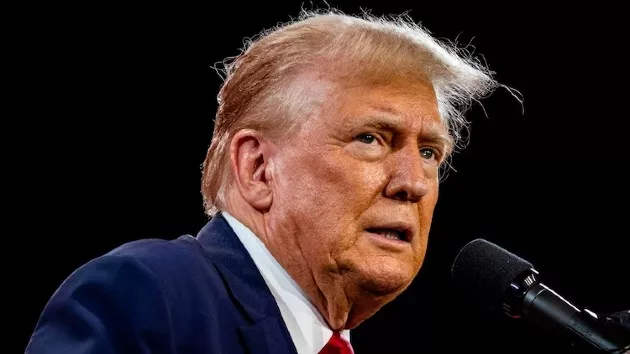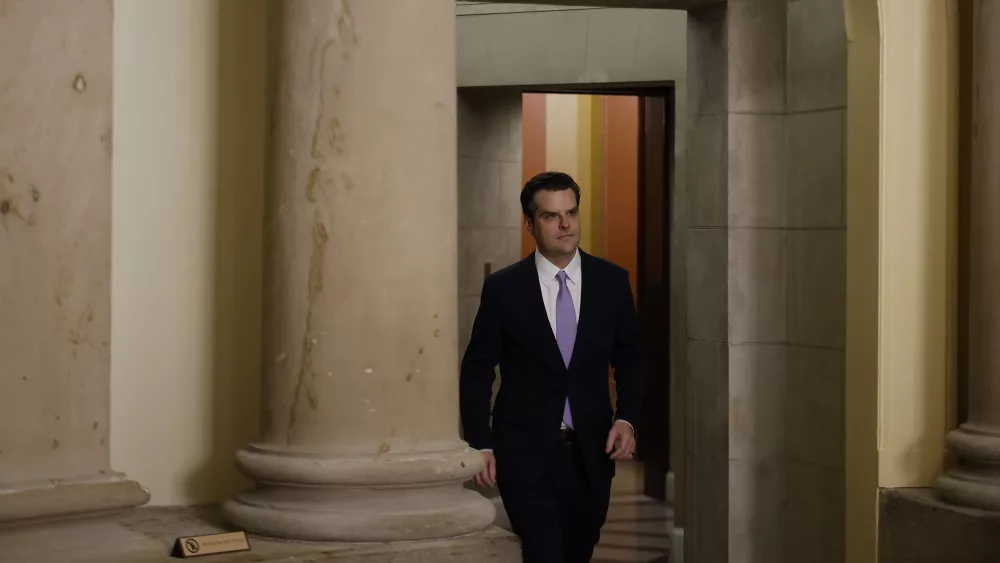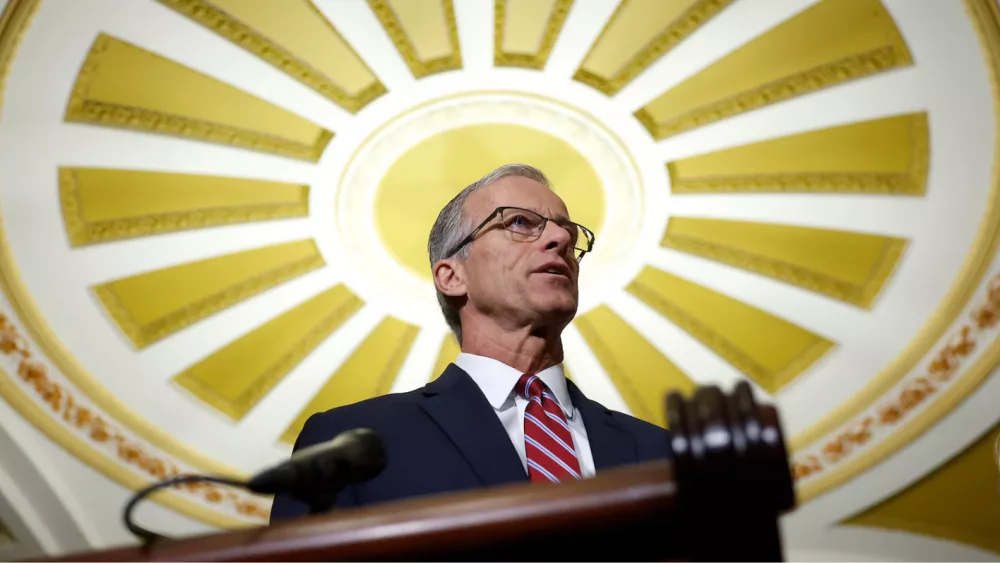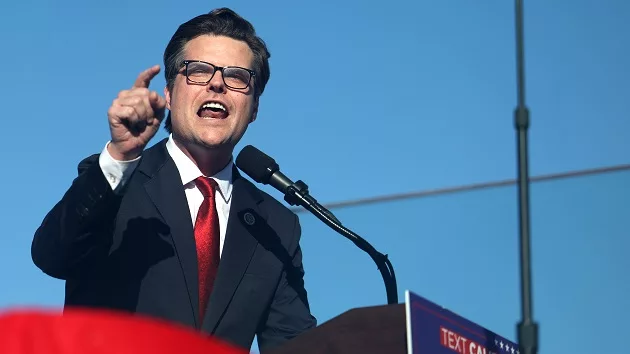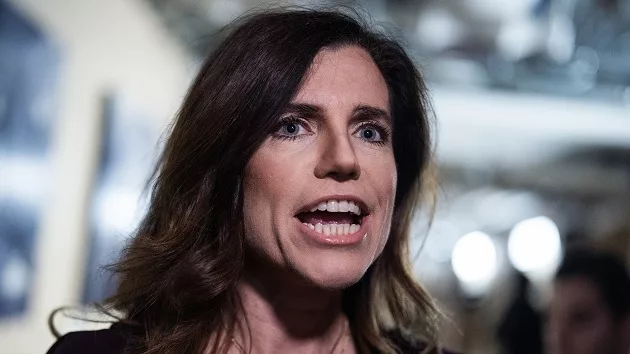(WASHINGTON) — The Supreme Court’s ruling that former President Donald Trump is presumptively immune from criminal prosecution for official acts carried out while in office is likely to have a ripple effect on each of his four criminal cases, potentially resulting in delays and complications that will further bog them down, experts told ABC News.
In the months leading up to the Supreme Court’s decision, Trump’s lawyers invoked presidential immunity as a defense in each of the four cases, including moving to dismiss Trump’s Florida and Georgia cases as well as exclude evidence in Trump’s New York hush money case.
While Monday’s ruling entitling Trump to immunity from prosecution for official acts while president will most directly impact his federal election interference case — potentially reshaping charges faced by the former president related to his conduct to overturn the 2020 election results — the Supreme Court’s decision could provide Trump’s lawyers additional ammunition to challenge and delay the other cases.
Following Monday’s landmark Supreme Court decision, Trump’s lawyers made their first move to capitalize on the ruling by seeking to throw out the former president’s conviction in New York for falsifying business records.
Experts suggested that both Trump’s federal and state election interference cases — brought by both special counsel Jack Smith and Fulton County District Attorney Fani Willis — could be reshaped to conform to Monday’s decision. Trump’s Florida criminal case — related to the alleged retention of classified documents — could face further delays to address the Supreme Court ruling.
“Trump’s lawyers are now going to make every argument they can make based on the Supreme Court’s decision,” said Pace University School of Law professor Bennett L. Gershman.
Trump has pleaded not guilty to all charges in each case, and has accused the cases of being politically motivated.
Federal election interference case
The Supreme Court determined that presidents are presumed to be protected by immunity for any official acts, but the court did not clearly apply the ruling to Trump’s alleged criminal conduct, leaving that decision to the trial judge overseeing the case.
Judge Tanya Chutkan — who froze the proceedings for six months during Trump’s Supreme Court appeal — will now need to determine if Trump’s alleged conduct comprised official or private acts. To answer that question, Chutkan will need to consider whether Trump’s conduct fell within the “outer perimeter” of Trump’s presidential duties or if the actions were committed in Trump’s capacity as president, rather than a candidate for office or party leader.
While the justices found that some of the conduct — such as Trump’s interactions with Department of Justice officials — are absolutely official acts, they acknowledged Trump’s interactions with his vice president or state officials could present “difficult questions” for Chutkan.
Adding to the challenge, the justices limited Chutkan’s ability to inquire about Trump’s motives because such an inquiry would be “highly intrusive” and “‘seriously cripple” the president’s ability to conduct their official duties.
“I expect there’ll be hearings about what counts can stand, and what counts can’t stand, and what evidence can be presented and what evidence can’t be presented,” said Jeffrey Cohen, a Boston College associate law professor.
Those hearings could also allow prosecutors to air evidence and testimony ahead of Election Day — though Chutkan is not permitted to set any hearings for another month until the Supreme Court’s decision is formally issued.
The Supreme Court also prohibited prosecutors from using any testimony or private records from Trump or any of his advisers related to official acts as evidence at trial, further complicating the case.
Smith might consider modifying the case against Trump by going back to a grand jury to secure a superseding indictment, according to Justin Levitt, a constitutional law professor at Loyola Law School.
Through a series of hearings and or an updated indictment, Chutkan could carve out a version of the case against Trump that meets the Supreme Court’s new standards, Levitt said.
Overall, experts ABC News spoke with agreed that Monday’s ruling significantly limited the breadth of the case and the kind of evidence that might be permissible at trial — and all but guaranteed that a trial would not take place before the election.
Either side can appeal Chutkan’s final decision about the bounds of the case, and that appeal could take up to a year and go all the way back to the Supreme Court.
“I think that this is a major hurdle for the prosecution,” said Fordham Law Professor Cheryl Bader. “This was a real gut punch.”
Georgia election interference case
The former president’s criminal case in Fulton County, Georgia, could also be reshaped by Monday’s ruling from the Supreme Court, experts said, because both the federal and the state case focus on Trump’s conduct while president.
“I would say that the rule for absolute immunity would apply pretty much equally in both instances, federal and state,” Gershman said.
Earlier this year, Trump’s lawyers sought to dismiss the state case based on the claim of presidential immunity, though the judge overseeing that case has yet to issue a decision, waiting for the Supreme Court’s final ruling.
“The indictment in this case charges President Trump for acts that lie at the heart of his official responsibilities as President,” Trump’s lawyers wrote in a January motion. “The indictment is barred by presidential immunity and should be dismissed with prejudice.”
Bader suggested that the Georgia case’s emphasis on conduct related to state officials and private individuals could help prosecutors, since those interactions are less likely to be considered official acts.
The Georgia case is currently delayed as an appeals court considers Trump’s challenge to Judge Scott McAfee’s decision not to disqualify District Attorney Fani Willis, though experts suggested Trump could likely use the immunity ruling to extend the delay if or when the case is remanded back to McAfee.
Federal classified documents case
In February, Trump’s lawyers moved to dismiss the former president’s federal case related to the alleged retention of classified documents by arguing that Trump’s conduct was covered by presidential immunity.
Trump’s lawyers argued that the criminal charges “stem directly from official acts by President Trump while in office” because Trump allegedly designated the classified documents as personal records while he was in office.
Legal experts who spoke with ABC News were skeptical of the argument because the case inherently focuses on Trump’s conduct following the presidency, though Judge Aileen Cannon has yet to issue a ruling on the motion.
“There’s a good argument there that there is no official action in holding on to documents after he leaves the office,” Gershman said.
Monday’s ruling might prompt Cannon to reconsider the question of immunity by applying the Supreme Court’s test for official acts — a move that could further delay the proceedings, experts said.
“I could definitely see Judge Cannon using this as an additional vehicle for delay,” Bader added, though she emphasized the case was already unlikely to go to trial before the election.
In a concurring opinion, Justice Clarence Thomas also provided support for the defense argument that Smith was illegally appointed as special counsel, which Cannon considered during a two-day hearing in June.
“If there is no law establishing the office that the Special Counsel occupies then he cannot proceed with this prosecution. A private citizen cannot criminally prosecute anyone, let alone a former President,” Thomas wrote.
New York hush money case
In May, a New York jury convicted Trump on 34 counts of falsifying records related to a hush-money payment to adult film actress Stormy Daniels in order to boost his chances in the 2016 presidential election.
Ahead of the trial, Trump’s lawyers asked that the judge overseeing the case limit certain evidence based on Trump’s immunity claim. The evidence — a government ethics form disclosing the reimbursement at the center of the case, and Trump’s social media posts from his official Twitter account in 2018 related to an alleged “pressure campaign” against his former lawyer Michael Cohen — was admitted into evidence during the trial after Judge Juan Merchan rejected the immunity argument as “untimely.”
“The Court declines to consider whether the doctrine of presidential immunity precludes the introduction of evidence of purported official presidential acts in a criminal proceeding,” Merchan wrote in an April decision.
In a letter to Merchan on Monday — described by sources to ABC News — Trump’s lawyers argued that the verdict should be thrown out because the jury saw evidence that should have been protected by Trump’s immunity for official acts.
Trump’s lawyers could ask Merchan or an appeals court to reconsider if the conviction would stand without the social media posts and ethics form, if the evidence was deemed protected as an official act, according to Gershman.
“There’s just a mountain of other evidence that would support the jury’s verdict, so I don’t see it really having any appreciable impact, if any impact, on the New York case,” Gershman said.
A federal judge who heard arguments related to Trump’s effort to remove the case to federal court already dismissed the argument that any of Trump’s conduct in the case was protected “under the color of the official acts of a President.”
“The evidence overwhelmingly suggests that the matter was purely a personal item of the President — a cover-up of an embarrassing event,” Judge Alvin Hellerstein wrote in a July 2023 decision denying Trump’s effort to remove the case to federal court. “Hush money paid to an adult film star is not related to a President’s official acts. It does not reflect in any way the color of the President’s official duties.”
Copyright © 2024, ABC Audio. All rights reserved.


